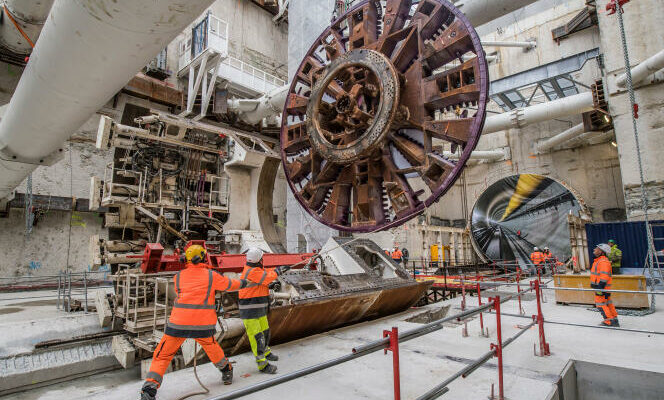Not one was missing on Monday, December 18, at 9 a.m. A long room had been reserved at the headquarters of the organizing committee for the Paris 2024 Olympic and Paralympic Games (JOP), in Saint-Denis. For those who could not travel, remote intervention was possible. Five minutes each, maximum. Once the tone is set by Pierre Cunéo, the transport director of Paris 2024 − it is “a real challenge”but ” we are confident in our ability (…) to manage the movements of everyday users and spectators” −, each member of “the French transport team”, meeting for the first time in front of the press, declined his part.
The next day, Clément Beaune, the Minister of Transport, also wanted to intervene ahead of the 9e mobility committee of the Olympic Games which he chaired in the afternoon alongside the Minister of Sports Amélie Oudéa-Castéra and the Minister Delegate in charge of disabled people Fadila Khattabi. The tone was more measured but “commitments are kept”, he assured journalists.
So much certainty and collective reassurance, seven months before the start of the opening ceremony, looked very much like a response to the controversy raised a month ago by the socialist mayor of Paris. There is “two things we are not going to be ready for”, declared Anne Hidalgo, on November 22, on the set of the show Daily from TMC, regarding the JOPs, these are ” transportation “ And “sheltering homeless people” fixed, evoking, for the first subject, the difficulties that Parisians encounter every day. She did not exclude her share of responsibility − “We do all this together, so I feel involved too” −, but its exit had stung Clément Beaune like Valérie Pécresse, president of the Ile-de-France Region and the regulatory authority of Ile-de-France Mobilités (IDFM). “We will be ready”replied the latter, the next day, on the X network.
Making do with what exists
The challenge is real. Because not only are between 800,000 and 1 million additional people expected, every day, in transport during the period, in France, including 500,000 people around Paris (not counting the 200,000 accredited). But the organizing committee has set itself an additional objective: to have 100% of spectators arrive and leave at the 25 competition sites by public transport, by bike or on foot. A first in history for games that want to be “the most carbon-free” of the modern era. It is ” the largest transport operation carried out in civil matters (…), the equivalent of fifty matches at the Stade de France every day », summarizes Clément Beaune. In Saint-Denis, during peaks, it will be necessary to transport 60,000 people per hour, or a thousand per minute.
You have 65% of this article left to read. The rest is reserved for subscribers.
